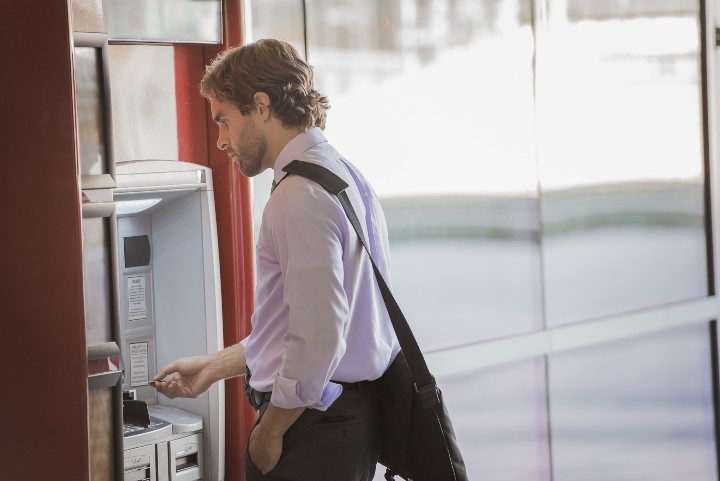When you frequently use the automated teller machine (ATM) for your transactions, you are bound to receive an ATM credit alert in your bank account.
An ATM credit is not a usual occurrence, but knowing the potential reasons behind it will be helpful in case it happens to you.
Here’s What ATM Credit on Your Bank Account Means:
An ATM credit occurs when your bank account is credited with cash from a source, such as a bank ATM. This type of credit notification is not expected since ATMs are typically used to withdraw funds, but it can happen. Nowadays, anyone can deposit cash into someone else’s account using an ATM.
Bank debit and credit alerts follow a unique structure that contains information about each transaction made in your account. When money is sent to your account using an ATM, this will appear in your bank statement as an ATM credit.
Only those who utilize ATMs for transactions will get credit alerts. If you do not have an ATM card or have never used it to transact, an ATM cannot credit you.

Why Does My Bank Account Receive ATM Credit Randomly?
An ATM credit will show in your bank account if you debited money at an ATM or if an ATM overcharged you and credited the excess into your account.
One main reason for an ATM credit is a deposit made through an ATM.
It is possible to deposit cash or checks into a bank account using a deposit-enabled ATM. Many people take advantage of the convenience this offers, mainly if it is already after-bank hours and financial institutions are already closed.
When money is added to your account via a bank ATM, it will appear as ATM credit in your bank statement.
Another common reason for ATM credit is when you have been debited twice during withdrawal, and the bank reverses the excess debit to your account.
ATMs sometimes have glitches. There are instances when they do not dispense money as directed, but accounts get debited.
Situations like these can be incredibly frustrating and scary. You wonder whether or not you will be reimbursed for the money you did not receive.
If your account balance is already low at this time, the mishap may also result in financial issues.
Fortunately, banks typically solve the issues quickly. In a best-case scenario, an ATM operator has already noted what happened and will fix the error in your account.
ATM also has built-in counting devices that detect hiccups in the system.
In some cases, getting your money back takes more effort on your part.
If you got debited while withdrawing money via the ATM, you should contact your bank as quickly as possible. Usually, there is a phone at the machine that you can use to report the problem.
Even if the ATM is owned by a different financial institution, informing your bank about what transpired is critical.
One advantage of using a bank branch ATM is that it has surveillance cameras. These can verify that the machine did not dispense any cash during your transaction.
When the bank evaluates your transaction and realizes that you were overcharged, they will reimburse the balance between what you requested and what you received.
A network outage on an ATM just when it is about to dole out cash can also debit your account.
Cash held in the ATM during connectivity failure or technical fault will be credited to your account, usually within 24 hours or on the next business day.
An ATM credit in your bank account may also be due to charges for utilizing another bank’s ATM.
When you use an ATM that does not belong to your bank's network, you will incur fees. These are two or three dollar fees charged to your account.
Usually, your financial institution will allow you a certain amount of free ATM use before charging you. It will put down money in your account to cover those fees, resulting in an ATM credit.
Similarly, when a bank ATM mistakenly charges you after you take out money, the amount will be refunded in your account.
An example is when you brought something and were charged extra.
Returning goods, you already paid for using your ATM will likewise result in an ATM credit.
For instance, when you receive a damaged item and want to get a refund, the money will be credited to your account once the seller processed your return request.
Sources:
Investopedia: Bank Account Debit: What's Really Happening?
Cloudcfo: Understanding your Bank Statement
